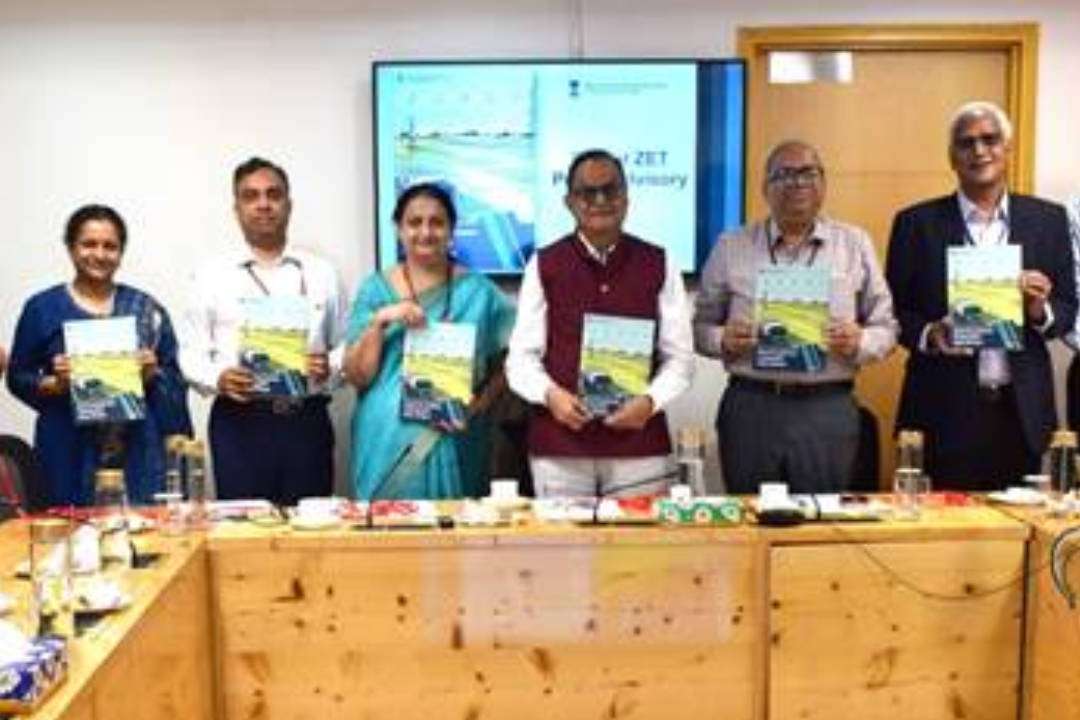At Vigyan Bhawan Annexe in New Delhi, Prof Ajay Kumar Sood, the Principal Scientific Adviser (PSA) to the Government of India, unveiled the “Bharat Zero Emission Trucking (ZET) Policy Advisory” document. The event featured contributions from several distinguished attendees, including Dr Parvinder Maini, Scientific Secretary at the Office of PSA; Hanif Qureshi, Additional Secretary (Auto) at the Ministry of Heavy Industries.
Sudhendu Sinha, Adviser for Infrastructure Connectivity & E-Mobility at NITI Aayog; Prof Shankar Ram from IIT Madras, a member of the Consultative Group on e-Mobility (CGeM); M. Ravi, Chief of Operations at the Centre of Excellence for Zero Emission Trucking (CoEZET), IIT Madras; Sharvari Patki, Program Head for Electric Mobility at the World Resources Institute (WRI); and Chandana K., Program Associate for Sustainable Cities & Transport at WRI were also present.
In his opening remarks, PSA Prof Sood highlighted the critical role of Zero Emission Trucks (ZET) in advancing decarbonization and ensuring energy security. He stated, “The deployment and broader adoption of ZETs necessitate technical expertise and methodical policy interventions to build a supportive techno-socio-economic framework in India.”
Prof Karthick Athmanathan, PSA Fellow and Professor of Practice at IIT Madras, introduced the Bharat ZET Policy Advisory document, while Patki provided an overview of the document, explaining the approach and methodology used to develop the policy interventions.
Hanif Qureshi and Sudhendu Sinha also addressed the audience, emphasizing the importance of truck electrification and outlining the path towards achieving 100% ZET sales penetration by 2050—a crucial milestone for reaching India’s Net Zero 2070 goal. The Bharat ZET Policy Advisory is envisioned as a dynamic framework consisting of 30 detailed policy interventions aimed at expediting ZET adoption across India.
These interventions are organized into five main areas: incentives, regulations, infrastructure, business and financing, and stakeholder-oriented initiatives. Each policy measure specifies a lead agency for implementation, identifies key stakeholders, assesses its sectoral impact, and describes the policy formulation process.
The recommendations will undergo further refinement through extensive stakeholder consultations and comprehensive cost-benefit and impact analyses conducted by relevant ministries, departments, and institutions. The advisory document’s development was guided by a Policy Advisory Panel (PAP) formed by the Office of PSA. A Project Management Unit at CoEZET, IIT Madras, was tasked with drafting the policy advisory under the PAP’s guidance.
The PAP is chaired by Dr Preeti Banzal, Adviser at the Office of PSA, with Prof Karthick Athmanathan serving as vice-chair. The panel also includes notable members such as Dr Reji Mathai, Director of the Automotive Research Association of India; S.A. Sundaresan, Vice President and Head of New Technologies at Ashok Leyland Ltd.; Sushant Naik, Global Head of Government and Public Affairs at Tata Motors Ltd.
Pawan Mulukutla, Executive Program Director for Integrated Transport at WRI India; Karthikey Hariyani, CEO of TecSo ChargeZone Ltd.; D.M.R. Panda, General Manager of Hydrogen & Renewable Energy at NTPC; Prof S.A. Soman from the Department of Electrical Engineering at IIT Bombay; Saurabh Sood, Senior Transport Specialist at the World Bank; Dr Sneha Malhotra, former Chief Technology Officer at the Office of PSA; and Rajesh S, CEO of CoEZET, IIT Madras were also there in the panel.







